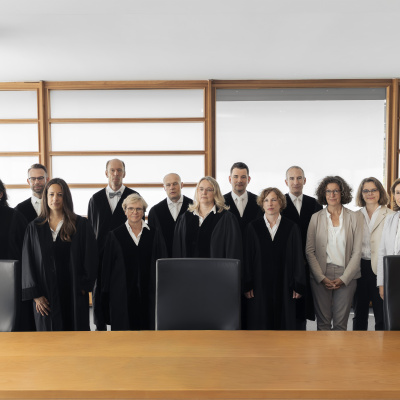Parties to a dispute may choose either the Commercial Court or the Commercial Chambers as the court of first instance.

Commercial Court or Commercial Chambers?
Overview of Judicial Instances

Structure
First Instance
Jurisdiction is determined by:
-
Amount in dispute (financial value of the case)
-
Subject matter (type of dispute, e.g., commercial or business-related)
This leads to two possible paths:
-
Commercial Court: competent only if both parties have agreed to its jurisdiction.
-
Commercial Chamber: competent automatically, without party agreement.
If neither the Commercial Court nor the Commercial Chamber has jurisdiction, the case proceeds to:
-
Civil Chamber (general civil division), or—upon request—to the Commercial Chamber (KfH).
Second Instance
From the Commercial Court or Commercial Chamber:
-
Appeals and complaints are heard again by the Commercial Court.
-
Appeals to the Federal Court of Justice (BGH) are admissible without prior leave (certiorari).
From the Civil Chamber or Commercial Chamber (KfH):
-
No appeal without leave to the BGH at this stage.
Third Instance
Only from the Commercial Court:
-
Revision (appeal on points of law) is heard by the Federal Court of Justice (BGH).
Summary of Jurisdictions
-
Commercial Court: competent only by party agreement; direct access to revision before the BGH.
-
Commercial Chamber: automatically competent; appeals possible to the Commercial Court.
-
Civil Chamber / KfH: no appeal without leave; revision to the BGH only upon application.
If the Commercial Court at the Higher Regional Court of Frankfurt am Main is chosen as the court of first instance, a party agreement is required. This agreement may be concluded either explicitly or implicitly by filing a claim directly with the Commercial Court or through appearance without objection to jurisdiction (rügelose Einlassung) pursuant to Section 119b (2) sentence 3 GVG, or by agreement before a Regional Court under the new Section 611 ZPO. The latter applies where the claim is first filed with the Regional Court or where jurisdiction of the Commercial Court arises later, for example through an amended claim or counterclaim.
In such cases, a two-tier system of appeal applies. The Commercial Court acts as the sole fact-finding instance pursuant to Section 610 (1) ZPO under the procedural rules applicable before the Regional Courts (§§ 253–494a ZPO). Appeals against its judgments go directly to the Federal Court of Justice, where review is available without a requirement of admission (Section 614 sentence 2 ZPO).
By contrast, if a claim is filed with the Regional Court Frankfurt am Main in a matter within its jurisdiction and above the threshold value, the competent Commercial Chamber (civil chamber or, upon application, chamber for commercial matters) is automatically seized as court of first instance. In this case, the traditional three-tier system of appeal applies: appeals against judgments and complaints against decisions of the Commercial Chambers are heard by the Commercial Court at the Higher Regional Court. Further review before the Federal Court of Justice is subject to the general rules on admissibility.


